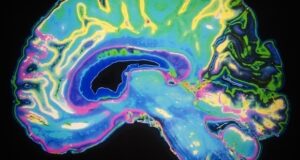Study reveals high confidence in scientists but flags gaps in openness and priorities.
 Study: Trust in scientists and their role in society across 68 countries. Image Credit: PeopleImages.com – Yuri A/Shutterstock.com
Study: Trust in scientists and their role in society across 68 countries. Image Credit: PeopleImages.com – Yuri A/Shutterstock.com
The advent of modern science brought profound changes to human life and thought, often replacing traditional beliefs with evidence-based practices. However, concerns have emerged in recent years, suggesting that trust in science may be weakening.
A study published in Nature Human Behavior recently examined public opinions across 68 countries to explore the extent of this perceived decline and the reasons behind it.
Why public trust in science matters
Trust in science is essential for fostering public engagement with evidence-based policies in critical areas such as health, climate change, and disease management. When trust is high, compliance and cooperation with policies rooted in scientific research improve significantly.
Earlier studies indicated that trust in science was widespread, but recent media narratives have challenged this perspective. To better understand the situation, the study analyzed global attitudes to address potential biases and cultural differences.
Study overview
The study surveyed 71,922 participants across countries. Conducted between November 2022 and August 2023, it assessed public trust in scientists using a 12-item scale that measured competence, benevolence, integrity, and openness. These metrics were combined into a composite index to capture overall trust levels.
Factors influencing trust
The researchers investigated how demographic, political, and cultural factors influenced trust in scientists. They also considered the impact of unethical research practices, lack of reproducibility, misinformation, and conspiracy theories, all of which can erode public confidence in science.
One unique aspect of the study was its focus on social dominance orientation (SDO) and science-related populism. People with high SDO often view science as perpetuating social hierarchies, which can lead to skepticism, especially when research institutions are seen as elitist.
Similarly, science-related populism reflects a belief that science is biased and unaligned with societal interests. Both attitudes were associated with lower trust in scientists. The perception of a gap between public expectations and research priorities further contributed to distrust.
Political polarization also played a role. Conservatives and right-leaning individuals generally exhibited lower trust in scientists, though the extent varied across regions.
Key findings: Trust levels and perceptions
Despite some variation across countries, the study found that trust in scientists remains moderately high worldwide, with an average score of 3.62 on a 5-point scale. Perceived competence was particularly strong, with 78% of respondents rating it highly.
Integrity and benevolence were rated moderately, with average scores of 3.58 and 3.55, respectively. Openness was rated lower, with only 42% of respondents believing that scientists are open to others.
A majority of respondents (75%) agreed that scientific research is the best way to verify the truth. This belief moderately correlated with higher trust in scientists.
Demographic insights
Trust in scientists was notably higher among women, older individuals, urban residents, high-income earners, liberals, and those with higher levels of education. Interestingly, literacy rates and government spending on education had little effect on trust levels.
Religious devotion influenced trust in diverse ways. In many Muslim-majority countries, religious faith was positively associated with trust in science, while in the United States, the opposite was observed.
Political leanings also influenced trust. In the United States, liberals expressed higher trust in scientists compared to conservatives. In Eastern Europe, Southeast Asia, and Africa, however, right-leaning individuals were more likely to trust scientists.
In most countries, political orientation—whether left or right—did not strongly correlate with trust, suggesting that leadership attitudes towards science may have a greater impact than individual political beliefs.
Public expectations and research priorities
The study revealed a significant gap between the research topics the public values and those they perceive scientists prioritize. Public health, energy production, and poverty reduction ranked among the top priorities for many respondents.
Conversely, military and defense technology were among the least favored topics in European and Latin American countries, though they were prioritized by respondents in several African and Asian nations.
Conclusion and implications
The study reaffirms that public trust in scientists remains moderately high, challenging the narrative of widespread distrust. However, the findings also highlight areas for improvement, particularly in addressing the perceived lack of openness among scientists and aligning research priorities with public expectations.
The authors emphasize the importance of clear and effective science communication to address the “openness deficit” and build stronger public connections. Even small pockets of distrust, especially when amplified by influential public figures or media, can disrupt the adoption of evidence-based policies. Addressing issues like social dominance orientation and improving transparency about research priorities could further strengthen trust in science.
Further research is needed to deepen our understanding of these dynamics. In the meantime, scientists and policymakers must engage meaningfully with the public to foster mutual understanding and trust.




